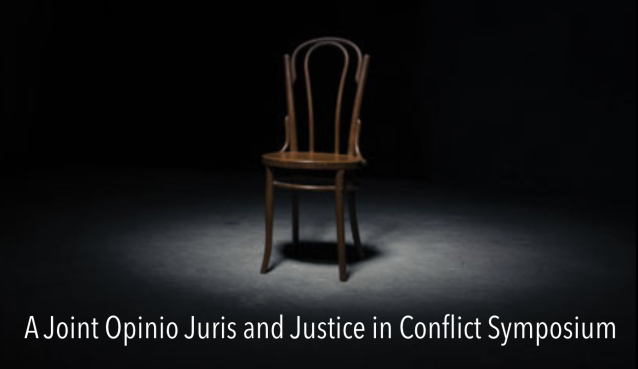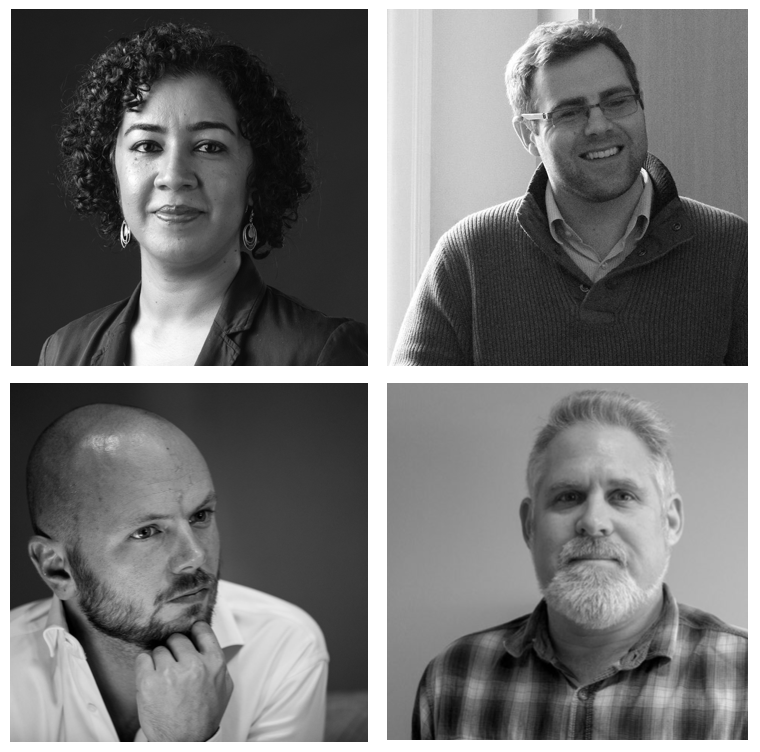The next ICC prosecutor: a joint Opinio Juris and Justice in Conflict symposium
The following symposium was organized by:
- Mark Kersten, Senior Consultant at the Wayamo Foundation and creator of the blog Justice in Conflict
- Kevin Jon Heller, Associate Professor of Public International Law at the University of Amsterdam and Professor of Law at the Australian National University;
- Patryk I. Labuda a Postdoctoral Scholar at the Fletcher School of Law and Diplomacy; and
- Priya Pillai, a lawyer and international law consultant.
Quite naturally, the world’s attention has been focused on the terrible suffering created by the COVID-19 pandemic. Life, however, goes on – including at international institutions. The International Criminal Court (ICC) is a case in point: with Fatou Bensouda’s tenure as the second Prosecutor in the Court’s history coming to an end, the Assembly of States Parties (ASP) is gearing up to elect her successor. The deadline for applications closed last November, and the ASP-appointed Committee on the Election of the Prosecutor is scheduled to hold interviews on April 24. We should know who the leading candidates will be not long after that.
It is difficult to overstate the importance of the election. Even the ICC’s most enthusiastic supporters acknowledge that the Office of the Prosecutor (OTP) has struggled to conduct effective investigations and to mount convincing prosecutions. The choice of the next Prosecutor will have a profound effect on how well – or how poorly – the Court functions for the next eight years. Simply put: the ASP has to get this right.
To assist the Committee and the ASP, Kevin Jon Heller, Mark Kersten, Patryk I. Labuda, and Priya Pillai asked a wide variety of individuals who work in international criminal justice – scholars, practitioners, activists – to reflect on a number of questions concerning not only the choice of the next Prosecutor, but also how the next Prosecutor should think about his or her role:
- What is/should be the role of prosecutors in international criminal tribunals?
- How should the Prosecutor engage states parties and non-states parties?
- How, if at all, should the next Prosecutor confront major powers in the world?
- What role should the next Prosecutor play in reforming the OTP? / Court?
- What can and should the next Prosecutor do to improve the ICC’s investigation techniques?
- Should the next Prosecutor address the Africa-ICC relationship? If so, how?
- How do we assess the Prosecutor’s performance?
- What is your assessment of the first two ICC Prosecutor’s performance? What did Luis Moreno Ocampo and Fatou Bensouda get right/wrong?
- What methods do we use to hold the Prosecutor accountable for his/her performance?
- How should the next Prosecutor deal with the OTP’s ongoing preliminary examinations?
- How should the next Prosecutor deal with the OTP’s ongoing situations? Closing situations?
- What strategies should the next Prosecutor employ to strategically communicate with the Court’s constituencies (states, affected communities, interested observers, scholars, etc.)?
- How can the next ICC Prosecutor live up the Court’s promise to effectively investigate and prosecutor SGBV crimes?
- What is the procedure for selecting the next Prosecutor? Process, transparency and lessons learned from previous elections.
- Who should be the next Prosecutor? Desirable experience/background.
The Symposium will run from 8 to 17 April at both Opinio Juris and Justice in Conflict.
Online posts:
- The Challenges for the Next ICC Prosecutor, by Luis Moreno Ocampo
- The Chief Prosecutor: Diplomat, Politician, Leader, Manager, and Lawyer, by David Crane
- The Next ICC Prosecutor Should Resolutely Hold the Most Powerful to Account, by Liz Evenson
- Electing the Next ICC Prosecutor: A Generational Opportunity, by Christian De Vos and Mariana Pena
- The Next ICC Prosecutor Should Resolutely Hold the Most Powerful to Account, by Liz Evenson,
- The Next ICC Prosecutor, by Steven Lamony
- Evaluating the ICC’s Chief Prosecutor, by Geoff Dancy
- Against Modesty at the ICC, by Tom Dannenbaum
- How do we assess the performance of the ICC’s first Prosecutors?, by Douglas Guilfoyle
- ICC Prosecutor Symposium: The Search for the New Prosecutor is Too Narrow in Scope, by William Schabas
- Choosing the Next ICC Prosecutor: Lessons from the Past, by James A. Goldston
- Wanted–International Prosecutor to Deliver Justice Successfully Across Multiple Complex Situations with Inadequate Resources, by Jonathan O’Donohue
- What can and should the next Chief Prosecutor do to improve the ICC’s investigation techniques?, by Ewan Brown and William Wiley
- The Appointment of the Next ICC Prosecutor Is Not a Forum for Career Transition, by Kate Vigneswaran and Melinda Taylor
- Less is More: Rediscovering the Prosecutor’s Core Mandate, by Patryk Labuda
- ICC Prosecutor Symposium: Advice for the Incoming ICC Prosecutor–Engage the U.S. Public Directly, by Beth Van Schaak
- The Politics of a Prosecutor: Getting the Context Right, by Mark Kersten
- The Prosecutor’s Commitment to Ensuring Gender Equality, by Valerie Oosterveld
- The Next ICC Prosecutor Must Embody Integrity in the #MeToo Era, by Danya Chaikel
- The ASP Should Choose a Prosecutor from the P-3, by Kevin Jon Heller
- ICC Prosecutor Symposium: “Mind the Gap”–Insights from Asia, by Priya Pillai
- What to Look for in the Next ICC Prosecutor, by Alex Whiting
- Placing the Prosecutor within the International Criminal Justice Project, by Diane Marie Amann
- The ICC Assembly of States Parties’ Selection Process for the Third ICC Prosecutor, by Charles C. Jalloh and Sabina Nölke




